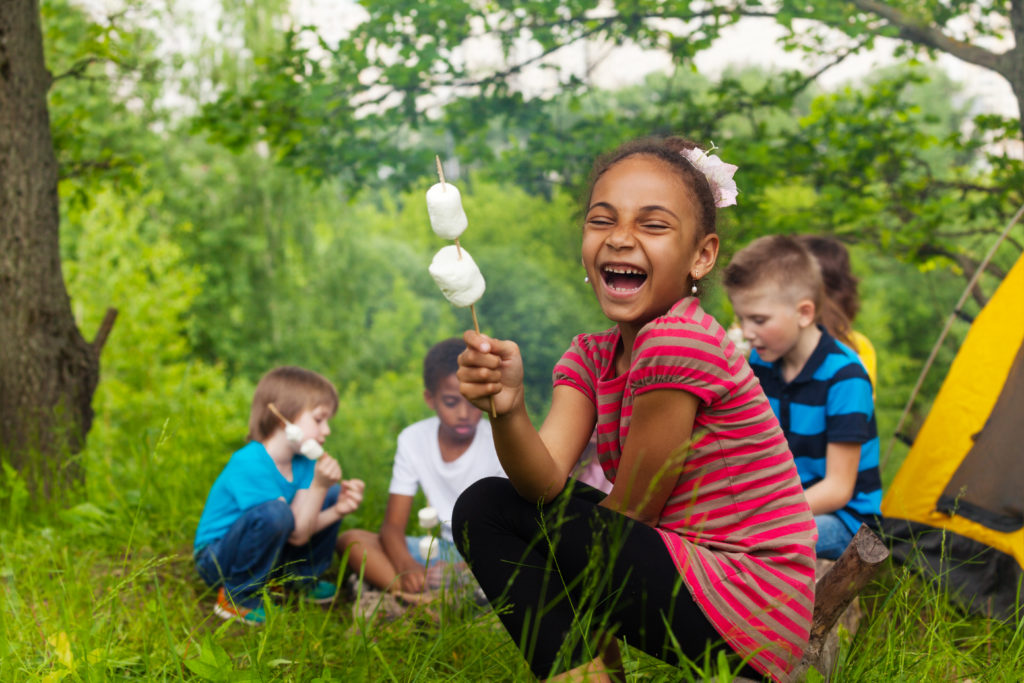Feeling anxious about sending your child away to camp this summer? Fret no more. This list of life skills reminds you of all the reasons to send kids to camp in the first place. Remember, being away from the comforts of home offers your camper growth opportunities in a wide variety of competencies. Kids will return home transformed by their experiences. Here are 30 skills they may learn that will remind parents why camp is always a good idea, as well as a panacea for 21st century predilections.
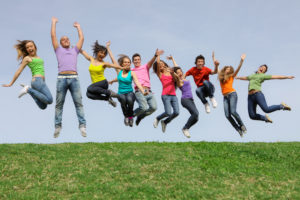
Physical Skills
- Fitness. If your child is a passionate about virtual realities, camp is the perfect motivation to get off the couch and get moving. You will be pleased when your child returns home fit and inspired to keep moving.
- Proficiency. Does your child complain of boredom? Exposure to skill-building activities can convert kvetching into pride. Aptitude, discipline and confidence come from doing new things.
- Safety awareness. Do you find yourself fretting about your child’s wellbeing? Then send her to camp to learn about first aid, water safety and other safety protocols that go hand in hand with learning new things. When she gets home, she can teach you a thing or two about safety awareness.
- Eye-hand coordination. Concerned your child may be a tiny bit klutzy? Send him to camp to participate in activities that encourage process mastery, like archery, horseback riding or rowing. Having to learn an ordered series helps dreamy kids focus and execute tasks.
- Healthy risk-taking. Is your child an adrenalin junkie? Do you worry that she will go too far testing the limits of what’s humanly possible? Camp is the perfect place to wear out a child with excess energy. Counselors can help campers channel a zest for risks into safe outlets while honoring camp rules.
Intellectual Skills
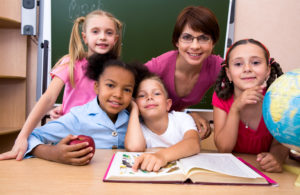
- Decision-making. Does your child waffle when making decisions, take polls of other people’s opinions or go along with the crowd too easily? Then camp is the perfect practice ground to determine what he wants and needs on a regular basis. Choosing is a crucial ability for creating satisfaction in life.
- Accountability. Do you wonder if you do too much for your child? Whether she has to pack her own backpack for an overnight hiking trip or show up wearing activity-appropriate shoes, being prepared for what’s coming next in life is important. When it comes to accountability, daily practice is always on tap at camp.
- Time management. If your child is often running late, camp is a great place to learn timeliness. Your child will swiftly master punctuality when engaged in activities she enjoys. And this proactive habit can carry over into everyday life during the rest of the year.
- Tolerance. Kids sometimes live in homogeneous rather than diverse environments. If all the other kids are the same race and socio-economic status where you live, how will your child learn to be open-minded? Camp is a great place to immerse kids in diversity so tolerance can take root.
- Assertiveness. When kids’ lives are scheduled from morning to night year-round, they miss out on opportunities to speak up for what they think, need and desire. Camp offers kids opportunities to practice healthy communication all day long, because no one is smoothing the path before them.
Emotional Skills
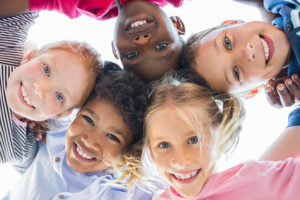
- Self-care. Kids can’t learn to take care of their needs unless they learn to pay attention to them. Going to camp puts kids’ self-care muscles to the test. Navigating a new environment with unfamiliar people helps kids learn to trust their intuition and honor their instincts.
- Listening. Do you get weary of nagging and feel your child just doesn’t listen anymore? Kids can certainly develop listening fatigue with parents and other everyday authority figures. But after tuning in closely to some new-to-them camp leaders, they just might bring better listening abilities back home.
- Playfulness. Got a perfectionist kid on your hands? Sometimes within the rush and rigors of daily life, kids can forget how to relax and enjoy life to the fullest. Camp is a great place to remember how to lighten up and enjoy the day.
- Grit. This trendy term means the combination of courage and resolve. If your child does not bounce back quickly from disappointments, camp is a great place to learn tenacity, conflict resolution and problem-solving.
- Self-appreciation. Do you appreciate the heck out of your kid but wish he would value himself as much as others? Camp is a place where kids can discover new things to like about themselves. Increased self-reliance is often the first step towards building higher self-esteem.
Social Skills
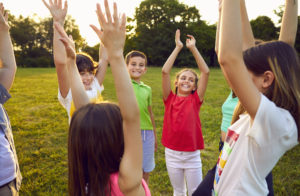
- Sociability. Do you have a shy or introverted child? If she lacks peers who are enthusiastic about her passions, an interest-based camp can help her meet more like-minded people. Socially awkward kids feel more accepted and appreciated every time they make a new friend.
- Emotional intelligence. If you have siblings who bicker quite a bit, they may benefit from getting along more easily with kids who are not kin. Camp counselors have a way of expecting thoughtfulness and encouraging kids to practice it.
- Lasting connections. Remember pen pals? At camps, kids can make new friends and find ways to keep in touch until they meet again. This is a terrific way for kids to maintain long-distance friendships and build an extended social network.
- Self-expression. Parents may unwittingly hold kids back from finding new forms of self-expression. At camp, kids find fresh audiences for the countless ways to share who they are and what they think and feel. Increased self-expression leads to unfolding self-discovery.
- Cohabitating. If you want your child to learn new things, put him in a tent with roommates and watch the lessons unfold. Sharing space and resources with others is a crash course in self-awareness and peacekeeping.
Occupational Skills

- Mentoring. Camp counselors provide excellent examples of what a constructive mentor-mentee relationship is like. Go ahead and encourage kids to become counselors in the future if they wish to experience both sides of this educational relationship.
- Collaboration. During the school year, teamwork may be limited to sports and cooperation may be confined to the classroom. At camp, every endeavor from cleaning a cabin to climbing a rock face becomes a new way to understand the importance of working together.
- Negotiating. Your kids benefit from learning how to sort things out between themselves at camp. Discussing, bargaining and coming to agreements that make sense for everyone involved are tools for creating a richer life.
- Leadership. Camp provides opportunities for kids to discover and nurture the leader inside. Every child is a boss at something. You may not think of a prolific reader as a leader, but what a terrific example she can set at camp for those who avoid books altogether.
- Diplomacy. With bullying behavior at an all-time high, diplomacy is more needed than ever. Camp offers ample opportunities to find common ground, share mutual respect and practice win-win-win relating.
Environmental Skills
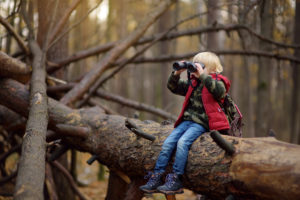
Unplugging. Virtual realities are great when balanced with the real world. If you cannot seem to make a dent in your child’s obsession with technology, why not let the trained staff at camp take a whack at it?
Groundedness. Being in touch with the natural world can be the first step to recovering from too much anxiety. Kids benefit in numerous ways from slowing down to the speed of life and keeping their feet firmly on the ground.
Navigation. You will not likely be able to convince kids that they need to learn old-school map techniques while they have a GPS in their pocket. But put them in the middle of the woods with no internet connection and they just might feel differently.
Survival. Would your child know how to build a shelter, purify water, start a fire and find food if lost in the wilderness? Learning skills like these empower kids to feel competent and confident in every area of life.
Earth stewardship. One of the best ways to teach kids about personal responsibility is to teach them about wilderness conservation. Learning about flora and fauna can spark kids’ innate respect for the natural world.
RELATED

